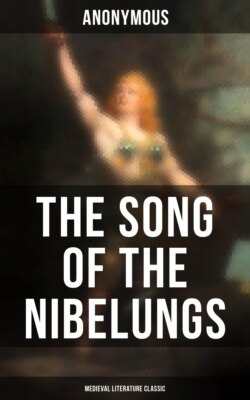Читать книгу The Song of the Nibelungs (Medieval Literature Classic) - Anonymous - Страница 12
2. Stages in the Evolution of the Poem
ОглавлениеHand in hand with the discussion of the relative authenticity of the manuscripts went the consideration of another more important literary question—the evolution of the poem itself. Even if we knew nothing of the history of the Nibelungen saga as revealed in the Edda and through other literary and historic sources, a reading of the poem would give us unmistakable hints that it is not, in its present form, a perfect literary unit. We detect inconsistencies in matter and inequalities of style that prove it to be a remodelling of material already existing in some earlier form. What, then, has been the history of its evolution? How did this primeval Siegfried myth, this historical saga of the Burgundians and Attila, first come to be part of the poetic stock of the German people? What was its earliest poetic form, and what series of transformations did it pass through during seven centuries of growth? These and many kindred questions present themselves, and the search for answers to them takes us through many winding labyrinths of the nation's contemporary history. Few products of German literature have so exercised and tantalized critics as the Nibelungenlied.
In this connection we have to remind ourselves that comparatively little of what must have been the large body of native poetry in Germany previous to the eleventh century has come down to us. Barely enough has been preserved to show the path of the nation's literary progress. Some of the important monuments have been saved by chance, while others of equal or perhaps greater value have been irrecoverably lost. The interest in the various incidents of the Nibelungen story was sufficient to keep it alive among the people and hand it down orally through many generations. If we could observe it as it passed from age to age we should doubtless see it undergoing continuous change according to the time and the class of the people that were the preservers of the native literature in its many ups and downs. Lachmann in the year 1816 was the first to bring scientific criticism to bear on the question of the Nibelungenlied and its origin. Applying to it the same methods as had recently been used by Wolf in his criticism of the Homeric poems, he thought he was able to discover as the basis of the complete epic a cycle of twenty separate lieder, ballads or shorter episodic poems, on the strength of which belief he went so far as to publish an edition of the poem in which he made the division into the twenty separate lays and eliminated those strophes (more than one third of the whole number) that he deemed not genuine. It is now generally admitted, however, that the pioneer of Nibelungen investigation fell here into over-positive refinements of literary criticism. Separate shorter poems there doubtless existed narrating separate episodes of the story, but these are no longer to be arrived at by a process of critical disintegration and pruning of the epic as we have it. An examination of the twenty lieder according to Lachmann's division convinces us that they are not separate units in the sense he conceived them to be. Though these twenty lieder may be based upon a number of earlier episodic poems, yet the latter already constituted a connected series. They were already like so many scenes of a gradually developing drama. Events were foreshadowed in one that were only fulfilled in another, and the incidents of later ones are often only intelligible on the supposition of an acquaintance with motives that originated in preceding ones. It is in this sense only, not according to Lachmann's overwrought theory, that we are justified in speaking of a liedercyclus, or cycle of separate episodic poems, as the stage of the epic antecedent to the complete form in which we now have it. But beyond this cycle we cannot trace it back. How the mythical saga of Siegfried and the Nibelungen, and the story of the Burgundians and Attila, were first sung in alliterative lays in the Migration Period, how as heathen song they were pushed aside or slowly influenced by the spirit of Christianity, how with changing time they changed also their outward poetical garb from alliteration to rhyme and altered verse-form, till at last in the twelfth century they have become the cycle of poems from which the great epic of the Nibelungenlied could be constructed—of all this we may form a faint picture from the development of the literature in general, but direct written record of it is almost completely wanting.
